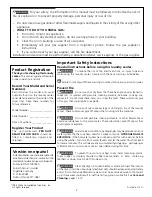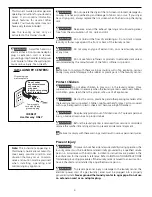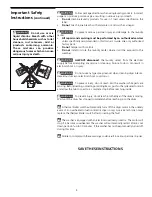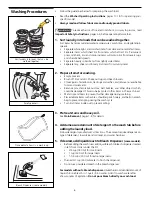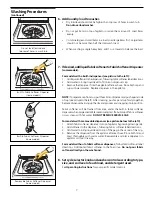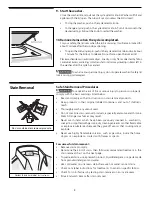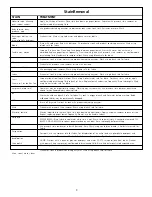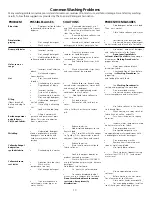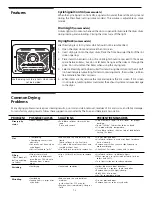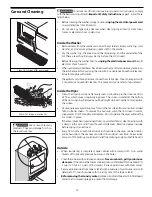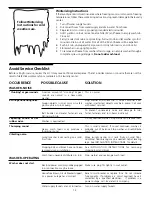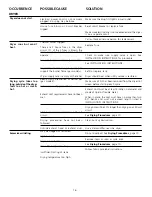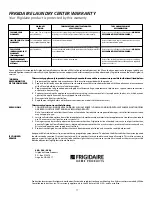
6
Washing Procedures
•
Follow the guidelines below for preparing the wash load.
•
Read the
Washer Operating Instructions
, pages 17-18, for operating your
specific model.
•
Always read and follow fabric care and laundry product labels.
To reduce the risk of fire, electrical shock, or injury to persons, read
Important Safety Instructions
, pages 2-4, before operating this washer.
1. Sort laundry into loads that can be washed together.
Sort items by recommended water temperatures, wash time, and agitate/spin
speeds.
•
Separate white, light, and colorfast items from dark and noncolorfast items.
•
Separate items which shed lint from items which attract lint. Permanent
press, synthetic, knit and corduroy items will pick up lint from towels, rugs
and chenille bedspreads.
•
Separate heavily soiled items from lightly soiled items.
•
Separate lacy, sheer and loosely knit items from sturdy items.
2. Prepare items for washing.
•
Empty pockets.
•
Brush off lint and dirt. Shake out rugs and beach towels.
•
Close zippers, fasten hooks, tie strings and sashes, and remove nonwashable
trims and ornaments.
•
Remove pins, decorative buttons, belt buckles, and other objects which
could be damaged. This also helps protect other items in the wash load.
•
Mend rips and tears to prevent further damage during washing.
•
Place delicate items such as bras, shoulder pads, hosiery, and belts in a mesh
bag to prevent tangling during the wash cycle.
•
Turn knit items inside out to prevent pilling.
3. Pretreat stains and heavy soil.
See
Stain Removal
, pages 7-8, for details.
4. Add a measured amount of detergent to the wash tub before
adding the laundry load.
Follow detergent manufacturer's directions. The amount required depends on
type of detergent, load size and soil level, and water hardness.
5. If desired, add liquid bleach to Bleach Dispenser
(some models).
•
Before adding the wash load, add liquid bleach to bleach dispenser located
in left front corner under the lid:
•
3/4 cup (180 ml) for small loads
•
1 cup (240 ml) for large loads
•
1-1/4 cups (300 ml) for extra-large loads.
•
Then add 1 cup (240 ml) water to flush the dispenser.
•
Do not use powdered bleach in the bleach dispenser.
For models without a bleach dispenser,
dilute the recommended amount of
liquid chlorine bleach in 1 quart (.95 L) water. Add it to wash water after
a few minutes of agitation.
Do not pour bleach directly on wash load.
Bleach Dispenser (some models)
Place delicate items in a mesh bag.
Empty pockets.
Sort laundry into loads that can be
washed together.
Summary of Contents for 131781700
Page 1: ...2 ...


